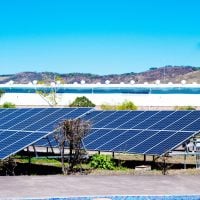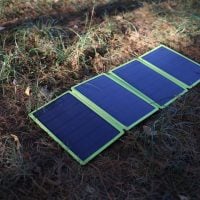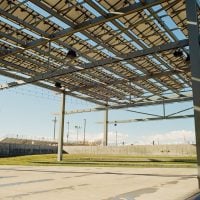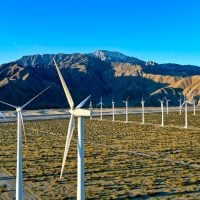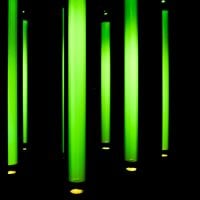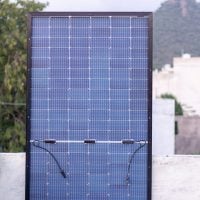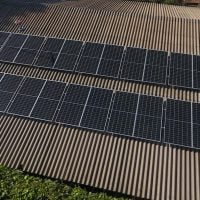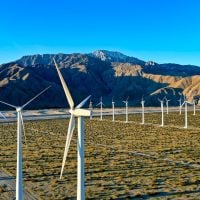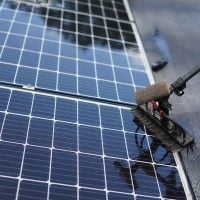Deadline: 26-Sep-23
The U.S. Department of Energy’s (DOE) Office of Fossil Energy and Carbon Management (FECM) announced the Direct Air Capture (DAC) Prize to promote diverse approaches to direct air capture.
The Direct Air Capture Pre-Commercial Prize provides up to $15 million in prizes to incubate and accelerate research and development of breakthrough direct air capture technologies. The Direct Air Capture Commercial Prize provides up to $100 million in prizes to qualified direct air capture facilities for capturing carbon dioxide from the atmosphere.
The DAC Pre-Commercial Technology Prize (DAC Technology Prize) is part of a suite of interconnected competitions in the American-Made DAC Prize program. Understanding that there are several steps to move from an idea to a marketable product, the DAC Prizes are a suite of prizes that work together to advance carbon dioxide removal technologies and the incubators that make this process possible.
Direct air capture is technically challenging compared to other carbon capture systems, which prevent the release of additional emissions. However, it is an increasingly important tool in counterbalancing hard-to-decarbonize sectors. Because of this, the DAC Technology Prize focuses on developing DAC technology innovations, such as novel materials or systems integration, that will accelerate opportunities and successes in the industry.
Together, the Pre-Commercial DAC Prizes will advance technological innovation, support new businesses, and help achieve emissions reductions targets.
Phases: Develop, Design, and Deliver
- Competitors in the DAC Pre-Commercial Technology Prize compete in three escalating phases:
- Develop (approximately 6 months) – Competitors identify and describe the specific critical need in the DAC industry they are addressing; detail a breakthrough component- or system-level solution; develop a conceptual design for an integrated, bench-scale proof of concept system; and craft a plan to validate the breakthrough DAC technology. Winners will receive $100,000 in cash and a $50,000 voucher for technical assistance from DOE’s National Energy Technology Laboratory (NETL) and will be eligible to compete in the Design Phase.
- Design (approximately 8 months) – Competitors finalize the design and cost of the integrated, benchscale proof of concept system; conduct a preliminary techno-economic analysis (TEA), life cycle analysis (LCA), and environmental, health, and safety (EH&S) risk assessment; develop a preliminary CBP, monitoring, reporting, and verification (MRV) plan, and engineering, procurement, construction, and testing plan; and develop a schedule to validate the breakthrough DAC technology. Winners will receive $500,000 in cash and a $150,000 voucher to use with EPIC incubators, national laboratories, or a facility in the American-Made Network, and will be eligible to compete in the Deliver Phase.
- Deliver (approximately 10 months) – Competitors construct and test the integrated, bench-scale proof of concept system across a range of relevant environmental conditions for at least 500 hours with appropriate MRV methods to validate the breakthrough DAC technology, conduct an updated TEA and LCA, and develop a CBP. Competitors will deliver a technology maturation plan (TMP) that provides plans for the next scale of integrated system testing and includes, at a minimum, a conceptual design for the scaled DAC system, as well as a long-term plan for the ongoing success of the effort—specifically, a compelling case that there is, or will soon be, sufficient funding in place to keep the effort going beyond this prize contest. One winner will receive $1,000,000 in cash.
- The three phases offer a cumulative total of up to $3.2 million in cash prizes and up to $800,000 in vouchers.
Contest Funding
- Phases:
- Develop: Up to seven (Winners) Prize – $100,000 in cash and a $50,000 voucher for DOE/NETL technical assistance
- Design: Up to three (Winners) Prize – $500,000 in cash and $150,000 in vouchers
- Deliver: One (Winners) Prize – $1,000,000 in cash.
Elements
- The American-Made Network cultivates resources and builds connections that enhance, accelerate, and amplify competitors’ efforts. The objective is to link participants with the people, resources, financing, perspectives, and industry expertise necessary for long-term success.
- The American- Made Network is composed of the following elements:
- Prize and Network Administrator (NREL): DOE has partnered with NREL to administer the DAC PreCommercial Technology Prize. NREL, as the administrator, helps competitors locate and leverage the vast array of national laboratory resources. NREL also connects elements of the network with the competitors, as described.
- Vouchers: Winners may receive vouchers that can be used to fund work at national laboratories and within the American-Made Network to accelerate the production, improvement, or validation of their prototypes.
- DAC Pre-Commercial EPIC Prize Incubators – The DAC Pre-Commercial EPIC Prize provides cash prizes to regional incubator teams that submit creative and impactful plans to support entrepreneurs and innovators in developing DAC solutions and create meaningful community engagement. Competitors in the DAC Pre-Commercial Technology Prize are encouraged to use these incubators as resources
Program Goal Requirements
- The proposed solution is a breakthrough DAC technology that will move the industry beyond its current state and demonstrates progress toward DOE’s Carbon Negative Shot, which is a pathway-neutral “Energy Earthshot” that aims to develop <$100/net metric ton (tonne) CO2- equivalent (CO2e) removal by 2032, with costs including MRV. The breakthrough DAC technology should maximize the CO2 capture efficiency from dilute media (>70%), space velocity (>150,000 hour-1), and volumetric productivity (>2 gmol CO2/hour/liter), while minimizing pressure drop (<150 Pa), capacity fade per cycle, and electrical and thermal energy duty (<3 GJ/tonne CO2).
- Most activities that are described in and support the submission package are performed in the United States and have the potential to benefit the domestic DAC market.
- The proposed solution will have a pathway to economic viability in the DAC market.
- The proposed solution does not involve the lobbying of any federal, state, or local government office.
- The proposed solution is based on fundamental technical principles and is consistent with a basic understanding of the U.S. market economy, including potential eligiblity for participation in voluntary and compliance carbon markets.
- The submission content sufficiently confirms the competitor’s intent to commercialize early-stage technology and establish a viable U.S.-based business in the near future, with revenues that do not solely depend on licensing fees of intellectual property.
Eligibility for All Contests
- Individuals, private entities (for-profits and nonprofits), and nonfederal government entities (such as states, counties, tribes, municipalities, and academic institutions) are subject to the following requirements:
- An individual prize competitor (who is not competing as a member of a group) must be a U.S. citizen or a permanent resident.
- A group of individuals competing as one team may win, provided that the online account holder of the submission is a U.S. citizen or a permanent resident. Individuals competing as part of a team may participate if they are legally authorized to work in the United States.
- Private entities must be incorporated in and maintain a primary place of business in the United States with majority domestic ownership and control.
- If an entity seeking to compete does not have majority domestic ownership and control, DOE may consider issuing a waiver of that eligibility requirement if
- the entity submits a compelling justification;
- the entity is incorporated in and maintains a primary place of business in the United States; and
- the entity otherwise meets the eligibility requirements. DOE may require additional information before making a determination on the waiver request. There are no rights to appeal DOE’s decision on the waiver request.
- Academic institutions must be based in the United States.
- Non-DOE federal entities and federal employees are not eligible to win any prize contests in this program.
- Employees of an organization that co-sponsors this program with DOE are not eligible to participate in any prize contests in this program.
- Individuals who worked at DOE (federal employees or support service contractors) within six months prior to the submission deadline of any contest are not eligible to participate in any prize contests in this program. Additionally, members of their immediate families (i.e., spouses, children, siblings, or parents) and anyone who lives in their household, regardless of relation, are not eligible to participate in the prize.
- NREL employees directly involved in the administration of this prize are not eligible to participate in any prize contest in this program; however, NREL and other national laboratory employees, including lab researchers, may compete and win a prize contest in this competition, provided they are not competing in their official capacity.
- Entities and individuals publicly banned from doing business with the U.S. government, such as entities and individuals debarred, suspended, or otherwise excluded from or ineligible for participating in federal programs, are not eligible to compete.
- Entities identified by the Department of Homeland Security (DHS) Binding Operational Directives (BOD) as an entity publicly banned from doing business with the United States government are not eligible to compete.
- Entities and individuals identified as a restricted party on one or more screening lists of the Departments of Commerce, State, and the Treasury are not eligible to compete.
- This prize competition is expected to positively impact U.S. economic competitiveness. Participation in a foreign government talent recruitment program could conflict with this objective by resulting in unauthorized transfer of scientific and technical information to foreign government entities. Therefore, individuals participating in foreign government talent recruitment programs of foreign countries of risk are not eligible to compete. Further, teams that include individuals participating in foreign government talent recruitment programs of foreign countries of risk are not eligible to compete.
- The submission must propose a novel solution that has not exceeded a demonstrated scale of 100 metric tons/year of CO2 capture capacity or more.
For more information, visit DOE.


